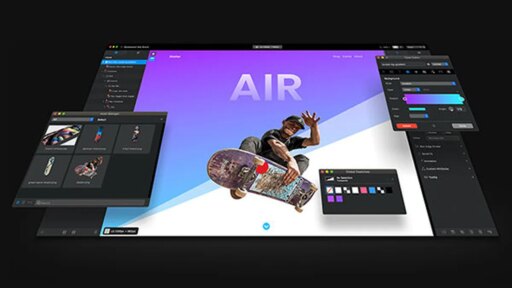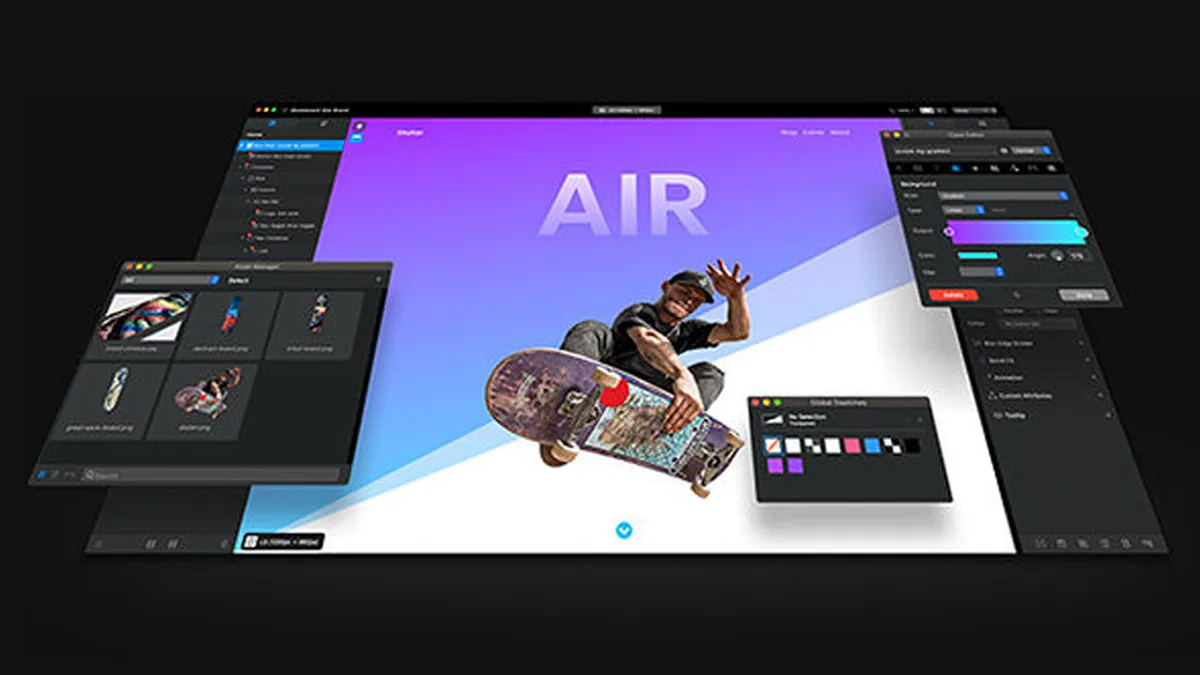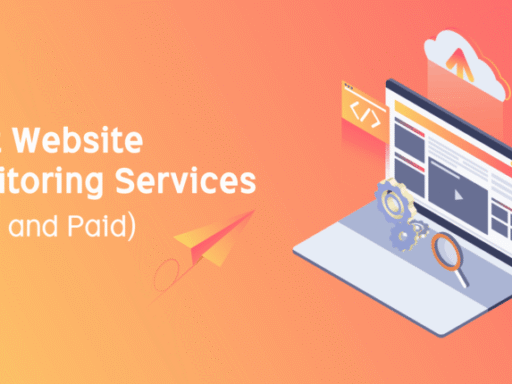Site purpose
If you’re building a professional portfolio, you’ll probably appreciate the elegant design and moderate flexibility of Squarespace. If you’re building a coaching business — or any other type of service-based business — you might consider Wix for its appointment booking tools. If you’re building a hobby site or you’re on a tight budget, you might want to consider Hostinger. If you’re creating an e-commerce store, you’ll probably want Shopify.
Ease of use
Every website builder lets you create a website without code. Beyond that, there are many differences between website builder interfaces. Some are more intuitive, making it easy to move from one area of site design to the next. Others use complicated processes that can be difficult to grasp if you’re not technically inclined. A steeper learning curve may mean a longer site-building process.
Most website builders offer either a free trial or a perma-free plan. You can use them to get a feel for the website builder you’re interested in before you commit to a long-term plan.
Design flexibility
Wix offers a pretty comprehensive suite of site editing tools.
Some website builders have limited options for fonts and color schemes, while others limit your ability to move content blocks. This can be great if you’re creating a personal site or a professional portfolio and you don’t want to spend a lot of time making small design decisions. If you want to create something unique, you’ll want to choose a website builder with more flexibility and spend more time fiddling with every individual setting. You can read in-depth reviews, watch tutorials or test website builders through their free trials to determine if the tool you’re considering has the flexibility you need.
E-commerce features
Do you plan to sell products on your site? If so, will selling products be just one part of your site (like a blog with a merch store) or will it be the focus of your site? If it’s the former, most website builders will work for you. If it’s the latter, you may want to choose a specialized website builder for e-commerce like Shopify.
You’ll need to pay attention to the plans if you’re choosing a website builder that isn’t fully focused on e-commerce. Some, like Wix, restrict e-commerce features to higher-tier plans. Others, like Squarespace, charge steep transaction fees on lower-tier plans — and these fees are in addition to payment processing fees, not instead of payment processing fees. This means you’ll have to either increase your prices to cover those fees or be prepared to lose some money on every sale.
You’ll also want to pay attention to other e-commerce features such as checkout customization, inventory management, shipping calculation and automated sales tax calculation. Most website builders offer at least some of these tools but they may only be available on certain plans or have other restrictions. Wix, for example, only includes automated sales tax on up to 500 transactions per month even on the highest-tier plan.
AI availability and functionality
Most website builders offer AI site generation, which builds a site for you in a couple of minutes based on your site title, description and purpose. However, the quality of these tools varies. Some, like the Wix AI tool, generate sites that look like they came right out of 2008. (Unless you enjoyed the MySpace era, that’s not a good thing.) Others, like Squarespace, build beautiful websites. If you want to use AI site generation, read in-depth reviews or watch YouTube tutorials to see how each website builder’s AI tools work.
Before you build your website with AI, though, I recommend reading up on the ethical and legal concerns surrounding AI. Many Generative AI tools are trained by scraping content from the web, often without consent from or compensation for the original creators. Some companies are embroiled in copyright lawsuits because of this, including a lawsuit against Stable Diffusion. As of writing this article, it’s also impossible to copyright entirely AI-generated work in the US without human authorship of some kind.
Finally, I recommend avoiding AI if you’re concerned about climate change, as AI uses an enormous amount of power and water.
Storage
While most website builders offer unlimited storage, some companies like Wix have strict storage limits, making it important to consider how many pages — and the types of pages — you’ll be creating. A good rule of thumb is that you’ll need 1GB of storage for 10 large pages (product pages with several high-resolution images) or 100 small pages (blog posts with one or two images). You can use these estimates to figure out exactly how much storage you’ll need for your website or take the “more is better” approach and buy the highest storage plan you can afford.
Bandwidth/data transfer
Technically, bandwidth is a measurement of how much data your site’s server can send to visitors per second. However, most companies use bandwidth interchangeably with data transfer, which dictates how many visitors your site can have in a month.
Most popular website builders offer unlimited bandwidth (sometimes called data transfer, depending on the web host), so you won’t have to think about this much. Some companies, like Hostinger, do state limits on monthly visitors for their plans. Make sure you know the bandwidth/data transfer model of any website builder you’re considering.
Uptime
Uptime is the amount of time your site spends online, typically expressed as a percentage. Most web hosting companies offer a 99.9% uptime guarantee, promising that server issues won’t cause your site to go down for more than 10 minutes per week. Some website builder companies guarantee 99.99% uptime, which means your site shouldn’t go down for more than two minutes per week because of server issues. These guarantees are important because users who can’t access your site will probably go somewhere else. This can result in lost traffic and, if you’re running a business website, lost revenue.
Site speed
Visitors expect your site to load quickly. In fact, the percentage of people who leave your website after viewing only one page — known as the bounce rate — increases by 32% when load time goes from one to three seconds. Website builders often use two protocols to improve site speed and avoid this problem:
- Caching — A method of keeping information in a special type of data storage connected to the server’s CPU instead of the more traditional RAM. This allows data retrieval to occur at the CPU speed, which is faster than RAM speed, so visitors’ devices can load your site more quickly.
- Content delivery network or CDN— A network of interconnected servers in radically different geographical locations. For example, a content delivery network may include servers in North America, Europe, Asia and Australia. When your site data is distributed across a CDN, users’ devices can pull data from the server closest to their location rather than relying on a server on the other side of the globe. This can improve site speeds for international users.
Customer service
You should have 24/7 access to customer service through your preferred method of communication, like email or live chat. Some companies offer phone service as well.
Hours aren’t the only important factor, either. Your website builder’s customer support representatives should be quick to respond and trained well enough to help you with a variety of issues. This is especially important if you’re starting a business or e-commerce website, as downtime and other issues can result in lost revenue. We’ve shared customer support details from our hands-on reviews in this article to give you a better understanding of how each website builder company treats its customers.
Pricing
Most website builders use one of two pricing models: traditional web hosting pricing and simplified website builder hosting.
Traditional web hosting pricing comes with a significant introductory discount if you sign up for one or more years. You’ll have to pay up front for those years, but you’ll save a lot of money over the lifetime of your contract. However, your payment will increase significantly (often by $10 or more per month) when the contract renews.
Simplified website builder hosting charges the same amount yearly, with no introductory discounts or renewal price hikes. This makes it easy to calculate long-term costs, but you’ll often pay $15 or more per month from the get-go.
You’ll also need to consider additional expenses. For example, many website builders include your domain free for the first year, then charge $20 to $30 for domain renewal every subsequent year. You may also need to buy extensions for things like advanced marketing tools.







